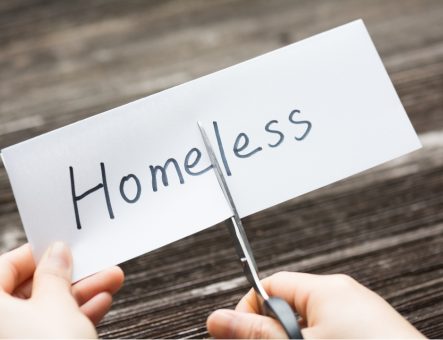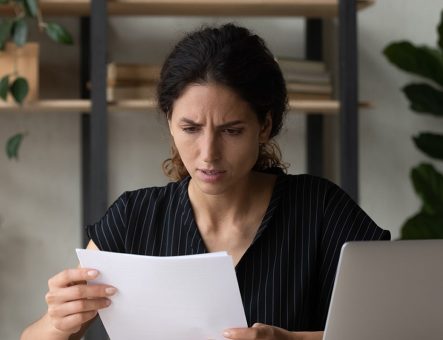In recent months, due to the Coronavirus pandemic, many more people in East Dunbartonshire have been having money problems. Unfortunately, this has meant that some companies have gone out of business, and people are needing to declare bankruptcy. However, this is not something many people know how to do. So if you are wondering how to claim bankruptcy in Scotland, here is how to go about it.

Bankruptcy in Scotland is a serious matter.
What happens if you declare bankruptcy in the UK?
The rules and processes on how you declare bankruptcy change depending on where in the UK you live. In Scotland, bankruptcy is often called sequestration. Only a court or the Accountant in Bankruptcy (AiB) can declare you bankrupt. When you are made bankrupt, all of your finances are controlled by another person, called a trustee. It is this person’s job to pay back as much as possible to those you owe money to, also known as creditors.
Compulsory Money Advice
Clients who want to apply for their own sequestration must first get advice from a money adviser about their financial circumstances. This will also include what effect that sequestration will have on them. This application will need to include the name and address of the money adviser. It should also include a declaration from the money adviser that the required money advice has been given.
From 27 May 2020, creditors can only apply to sequestrate someone if they owe them at least £10,000. This has been increased from £3,000 to help people affected by Coronavirus.
This change is in force until at least 31 March 2021. The Scottish government may decide to extend this deadline.

Help is available if you are facing bankruptcy.
Public Records
Your bankruptcy is recorded on a public register called the Register of Insolvencies (RoI). Creditors and credit reference agencies use this register to find out if their current customers have been made bankrupt.
Anyone can search the RoI free of charge. A link to the RoI is available on the Accountant in Bankruptcy’s website.
Details of your bankruptcy will remain on the RoI until 2 years after your trustee has completed their duties and obtained their discharge. The RoI lists details of Scottish bankruptcies (sequestrations) and trust deeds only.
Appointing a trustee
The Accountant in Bankruptcy (AiB) or the court will appoint an insolvency practitioner or the AiB to be the trustee in the sequestration. The trustee has wide powers to look after your property and finances. They also have wide discretion on how to use them in the best interests of the creditors and to financially benefit the sequestrated estate. This can include, for example:
- taking possession of money, valuables or financial documents,
- carrying on the client’s business, or
- requiring the client to complete any transactions s/he has entered into.
Any money received by the trustee must be deposited in an interest-bearing account.
Your trustee may want you to make a contribution from your income or pension to help towards the cost of your bankruptcy and your debts. They will not take a contribution from social security benefits or tax credits.
Your trustee or money adviser (as part of the application process), will assess your income and expenditure. They will work out if you have any surplus income available to make a contribution.
The Accountant in Bankruptcy will make the Debtor Contribution Order (DCO) fixing your contribution. This can be payable for 4 years. You are allowed to have one payment break from the ‘debtor contribution order’ of up to 6 months.
You must always co-operate with your trustee. Failure to do so can result in your bankruptcy lasting longer or restrictions being placed on you. You could also be committing a criminal offence for which you could be fined, sent to prison or both.

You’re never alone. Contact EDCAB today.
Is bankruptcy right for you?
So that’s how to claim bankruptcy, but before doing anything, take some time to make sure bankruptcy is right for you. It is a serious matter and has long-lasting implications for many years to come.
For example, declaring yourself bankrupt means there will be certain jobs and positions you will no longer be allowed to hold. These include standing for public office or act as a company director. You may be fired from your job if you work in financial services. If you are self-employed, you may not be allowed to continue running your business.
Being declared bankrupt will also have an impact on your credit score. This will mean it will be much more difficult to secure a mortgage, get a new mobile phone contract or take out any loans in the future.
So it may be that alternatives to your debt problems are better for you. Please make an appointment with one of our advisors so we can talk through your situation and advise you correctly.
If I claim bankruptcy, will I lose my home?
Many people worry that if they become bankrupt, they will lose their home. Unfortunately, this is a very real possibility. This can be the case especially if you own your own property. However be aware that even if you rent, the landlord could evict you. This may happen if you are behind in rent payments or in some way are breaking the leasing agreement.
If you are worried that you may lose your home through bankruptcy, give us a call to book an appointment and we can discuss your options.
What are the alternatives to bankruptcy?
Alternatives to bankruptcy are available. These include a debt payment programme under the Debt Arrangement Scheme (DAS), voluntary agreement directly with your creditors or debt consolidation. It’s highly recommended that you seek Money Advice before engaging in any of these.
Get in touch with the East Dunbartonshire Citizens Advice Bureau today for guidance on how to claim bankruptcy, speak to a money adviser to find out more about alternatives.
Contact us










